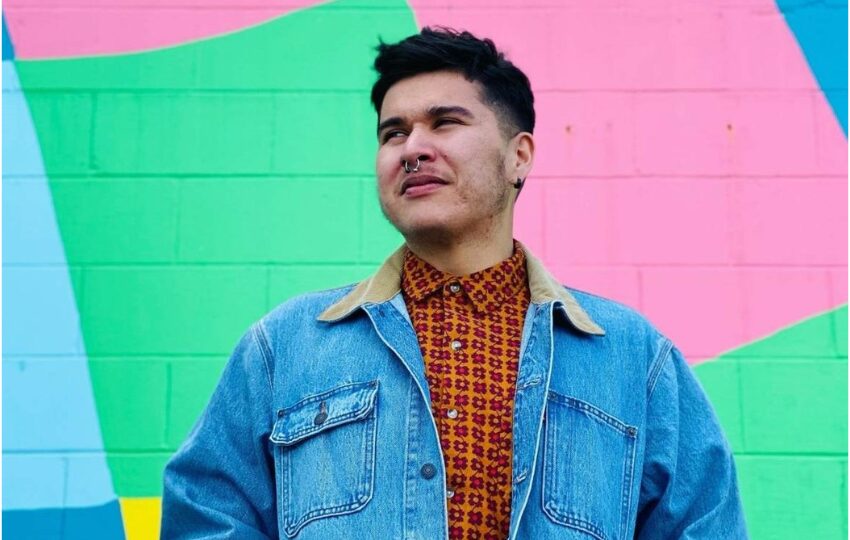
McGill’s 2024 Indigenous Studies and Community Engagement Initiative (ISCEI) Writer in Residence is Billy-Ray Belcourt, PhD, from the Driftpile Cree Nation in northern Alberta. His five books encompass poetry, memoir, and fiction, and explore topics such as decolonial love, grief, intimacy, and queer sexuality.
Belcourt is a Rhodes Scholar, the youngest ever recipient of the Griffin Poetry Prize, and a two-time finalist for the Governor General’s Literary Awards. He currently serves as Assistant Professor at the University of British Columbia’s School of Creative Writing, as well as Canada Research Chair in Queer Indigenous Cultural Production.
“We are very honored to host Billy-Ray Belcourt as the 2024 Mellon ISCEI Writer-in-Residence,” says Prof. Yann Allard-Tremblay, director of ISCEI. “Having witnessed very positive responses to the announcement of the residency among members of the McGill Indigenous community, we are very excited about it, and about the positive contributions it will make to the program.”
Belcourt’s works include This Wound is a World, NDN Coping Mechanisms: Notes from the Field, A History of My Brief Body, A Minor Chorus, and the upcoming Coexistence: Stories.
He will speak at two campus events, taking place Monday, March 25 and Tuesday, March 26. In advance of his lectures, the Reporter spoke with Belcourt.
Why did you accept the opportunity to serve as McGill’s Mellon ISCEI Writer in Residence?
I view writer-in-residence opportunities as the chance to network with colleagues, other writers, and students outside of my usual orbit. Being in Vancouver I’m very rarely in Montreal, so I was excited by the possibility of engaging with the community.
Much of your work examines the region you grew up in northern Alberta. How does that geographical history influence you when you’re away?
There’s this cliché amongst writers – a saying that you need to be away from a place to write about it clearly – and I do think that that was the case for me.
I wrote about northern Alberta [while living] in Edmonton, abroad, and now in Vancouver. I think having a bit of distance allows me to really grapple sincerely and honestly with my experiences with the larger social and political landscape of that area. I find I’m always writing in some way about northern Alberta; probably because there’s so few people doing that. That region’s not well-represented in Canadian literature and media, so I do feel a responsibility to do it justice.
You’ve said that the theoretic that empowers your writing “is a desire for native freedom.” Can you speak a bit more on that?
One of the things I try to teach my students is to think about writing as a social activity, which is to say something done in relation with other people. Writing can come out of a social desire, and for me that desire is for native freedom.
I think what motivates me to write is the possibly that the writing can make an audience feel the urgency of Indigenous people’s political will and desires.
On March 25, you will give a talk and a reading. What can you share about the event?
I’ll be talking a bit about my writing life and my writing process; the behind-the-scenes of what I do and why. More importantly I’ll be reading from my body of work, from early stuff to some really new stuff.
You’ve also been invited to give a talk on mental health. That’s somewhat unexpected for a writer in residence, but very much in line with your work.
Across my books I’ve written about my own experience accessing health care, and the barriers to it as an Indigenous person. I also write about mental health, sexuality, and the way that having honest and vulnerable conversations about those things are important.
I do have an activist history around Indigenous sexual health. I worked for an organization called the Native Youth Sexual Health Network for a few years in my undergrad. During my time there I helped administer various workshops in urban and rural centres about the importance of culturally-specific sexual health education and care.
I think the body is where so much of the history of colonialism manifests itself, so to discuss the body and health in this larger socio-political context is important to getting the fullest picture of the impact of colonialism.
Do you have any advice for aspiring writers?
One of my main points is to write into the space you wish you had for yourself. Be honest in your work, but also know your desires and your hopes, and to hold those things with a lot of care.
Do you have a set schedule for writing, or do you wait until you feel inspired?
These days I tend to write in the spring and summer because I have more time. I like to have an entire day to write – not just an hour here or there – to really surrender to the activity.
Is there anything else you would like to add?
Just that I’m really grateful to the folks in the ISCEI, and the people in those programs who organized everything to bring me here.
Learn more about the Mellon ISCEI Writer in Residence program.
